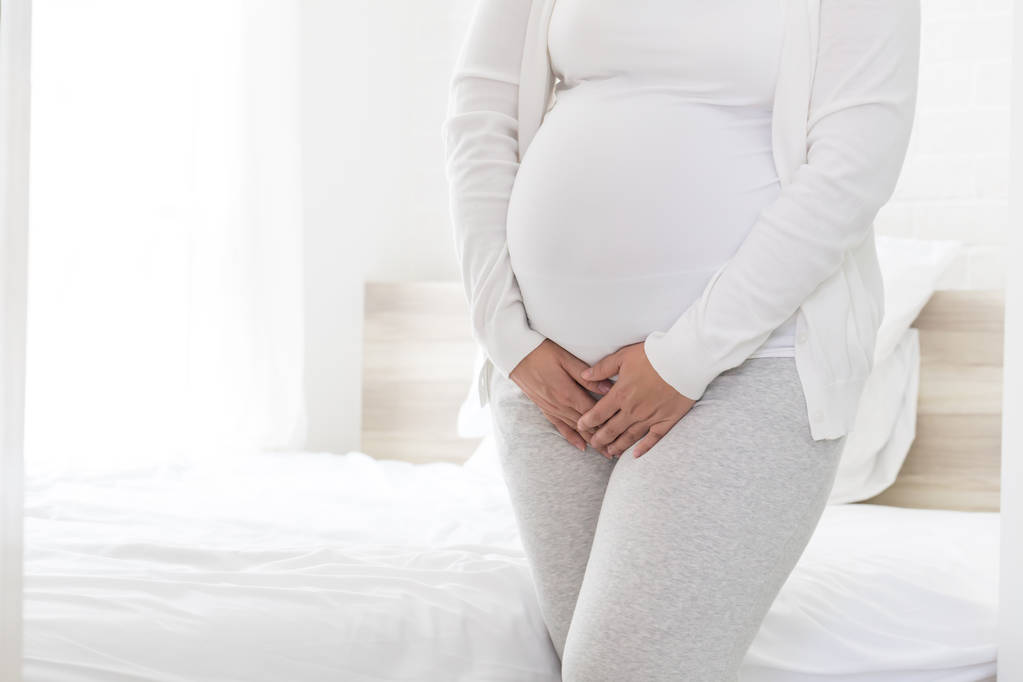Learn effective strategies to manage frequent urination during pregnancy.
How to Deal With Frequent Urination During Pregnancy
Being pregnant is an exciting and joyful time, but it also comes with its fair share of challenges. One common discomfort that many pregnant women experience is frequent urination. Don’t worry though, you’re not alone! Understanding why this happens and discovering practical tips to manage it can help you navigate through this situation with ease. So let’s dive right in and explore how to deal with frequent urination during pregnancy!

Understanding Frequent Urination During Pregnancy
Before we tackle the tips and tricks, let’s take a moment to understand why pregnancy brings on the urge to go, go, go. There are a few factors at play here, and it’s all part of your body’s beautiful, yet slightly quirky, transformation.
During pregnancy, your body goes through numerous changes to accommodate the growth and development of your baby. One of these changes is the expansion of your uterus. As your precious bundle of joy grows, your uterus expands and puts pressure on your bladder. This pressure can lead to that constant need to relieve yourself. It may feel like you just left the bathroom, and suddenly, nature calls again. Blame it on your adorable growing baby!
What Causes Frequent Urination in Pregnancy?
As mentioned earlier, the expansion of your uterus is a major factor contributing to frequent urination during pregnancy. However, there are other factors at play as well. Your body produces extra blood during pregnancy to support the growth of your baby. This increased blood volume leads to increased fluid production by your kidneys. The excess fluid then gets filtered through your bladder, resulting in more frequent trips to the bathroom.
In addition to the physical changes, hormonal changes also play a role in frequent urination during pregnancy. Oh, those pesky hormones! During pregnancy, your body produces extra progesterone, a hormone that helps maintain the pregnancy. However, progesterone also relaxes the muscles in your urinary tract, making it easier for urine to pass through. While this is great news for your baby, it means more trips to the bathroom for you!
The Role of Hormones in Frequent Urination
Progesterone is not the only hormone responsible for frequent urination during pregnancy. Another hormone called human chorionic gonadotropin (hCG) also plays a role. hCG is produced by the placenta and is responsible for maintaining the pregnancy in its early stages. This hormone increases blood flow to the pelvic area, including the kidneys and bladder, which can further contribute to the need to urinate more frequently.
Aside from the physical and hormonal factors, there are also lifestyle factors that can contribute to frequent urination during pregnancy. Increased fluid intake, necessary for the proper hydration of both you and your baby, can lead to more trips to the bathroom. Additionally, certain foods and beverages, such as caffeine and spicy foods, can act as diuretics and increase urine production.
It’s important to note that frequent urination is a common symptom of pregnancy and is usually not a cause for concern. However, if you experience any pain, burning, or discomfort while urinating, or if you notice any changes in the color or smell of your urine, it’s important to consult your healthcare provider, as these may be signs of a urinary tract infection.
The Impact of Frequent Urination on Daily Life
Now, let’s talk about how this frequent urge to tinkle can affect your daily routine. While it’s a normal part of pregnancy, it can have its challenges.
Sleep Disruptions Due to Frequent Urination
Getting a good night’s sleep can be challenging when you constantly feel the need to hop out of bed and visit the bathroom. The struggle is real, mama! To help minimize sleep disruptions, try avoiding fluids close to bedtime and create a relaxation routine before hitting the sheets.
Imagine lying in bed, exhausted after a long day, hoping to drift off into a peaceful slumber. However, just as you begin to relax, that familiar urge to urinate interrupts your tranquility. You reluctantly crawl out of bed, stumbling in the darkness towards the bathroom. This scenario repeats itself multiple times throughout the night, leaving you feeling groggy and fatigued the next morning.
Not only does frequent urination disrupt your sleep, but it also affects your partner’s rest. The sound of the toilet flushing and the light turning on can disturb their sleep as well. This can lead to a cycle of sleep deprivation for both of you, impacting your mood, productivity, and overall well-being.
Social and Emotional Effects of Frequent Urination
Running to the restroom all the time can make social situations a little trickier. You might find yourself avoiding outings or feeling self-conscious about the frequent bathroom breaks. Remember, pregnancy is a beautiful and temporary phase. Don’t let the fear of an embarrassing moment hold you back from enjoying this journey.
Imagine being invited to a social gathering with friends or family. You’re excited to spend time with loved ones and share in the joy of your pregnancy. However, the constant need to urinate looms over you like a dark cloud, causing anxiety and worry. Will there be enough bathrooms? Will you miss out on conversations and bonding moments because you’re constantly excusing yourself?
It’s natural to feel self-conscious about the frequent bathroom breaks. You may worry that others will judge you or think less of your ability to handle social situations. However, it’s important to remember that pregnancy is a beautiful and transformative experience. Embrace the changes happening in your body and don’t let the fear of an embarrassing moment hold you back from enjoying this special journey.
Additionally, frequent urination can impact your emotional well-being. The constant interruption of daily activities to relieve yourself can be frustrating and overwhelming. It may feel like your body is no longer under your control, and this loss of autonomy can lead to feelings of frustration and even sadness.
However, it’s essential to remind yourself that this phase is temporary. Your body is working hard to nurture and grow a new life, and these inconveniences are a small price to pay for the miracle of pregnancy. Surround yourself with a support system of loved ones who understand and empathize with your experience. Seek solace in knowing that this too shall pass, and soon you’ll be holding your little bundle of joy in your arms.
Practical Tips to Manage Frequent Urination
Now, let’s get down to business and explore some practical tips to help you manage frequent urination like a pro.

Hydration and Its Role in Urination Frequency
Staying hydrated is essential for both you and your baby, but it may seem counterintuitive when you’re constantly running to the bathroom. Finding a balance is key! Sip fluids throughout the day to stay hydrated without overloading your bladder. And remember, water is your best friend!
When it comes to managing frequent urination, understanding the role of hydration is crucial. While it may seem logical to reduce fluid intake to minimize bathroom trips, this can actually do more harm than good. Dehydration can lead to concentrated urine, which can irritate the bladder and exacerbate the need to urinate frequently. Therefore, it is important to maintain proper hydration levels by sipping fluids throughout the day.
Water, in particular, is highly recommended for its numerous health benefits. Not only does it help to flush out toxins from your body, but it also keeps your urinary system functioning optimally. By drinking an adequate amount of water, you can ensure that your kidneys are able to effectively filter waste products and maintain the balance of fluids in your body.
Effective Bladder Control Techniques
Training your bladder can be a game-changer when it comes to managing frequent bathroom trips. Practice holding your urine for gradually longer intervals to help increase your bladder’s capacity. Kegel exercises can also strengthen your pelvic floor muscles, giving you better control.
Managing frequent urination requires more than just staying hydrated. It involves training your bladder to hold larger volumes of urine and strengthening the muscles that support it. One effective technique is to gradually increase the time between bathroom visits. Start by trying to hold your urine for an extra 10 minutes and gradually increase the duration over time. This helps to stretch your bladder and increase its capacity, reducing the frequency of urination.
In addition to bladder training, Kegel exercises can also play a significant role in managing frequent urination. These exercises target the pelvic floor muscles, which support the bladder and urethra. By regularly practicing Kegels, you can strengthen these muscles and improve your ability to control urination. To perform Kegels, simply contract the muscles used to stop the flow of urine midstream and hold for a few seconds before releasing. Repeat this exercise several times a day for optimal results.
Medical Interventions for Frequent Urination
While most cases of frequent urination during pregnancy are normal, there may be instances where medical intervention is necessary.
During pregnancy, hormonal changes can lead to increased blood flow to the kidneys and bladder, resulting in more frequent urination. This is a common and expected symptom for many expectant mothers. However, if you experience any concerning symptoms along with frequent urination, it is important to seek medical help.
When to Seek Medical Help
If you notice any concerning symptoms like pain or a burning sensation while urinating, blood in your urine, or a persistent need to go without relief, it’s important to reach out to your healthcare provider. These symptoms could indicate a urinary tract infection or another underlying condition that requires medical attention. Your healthcare provider can evaluate your situation and provide appropriate guidance.
It is worth noting that frequent urination alone is not always a cause for concern. However, if you are unsure or worried about your symptoms, it is always better to consult with a healthcare professional for peace of mind.
Medical Treatments and Their Effectiveness
Depending on your specific situation, your healthcare provider may recommend certain treatments to alleviate frequent urination symptoms. These can range from medication to behavioral therapies, tailored to your unique needs. It is important to remember that every individual’s situation is different, and what works for one person may not work for another.
Medication options for frequent urination may include anticholinergic drugs, which help relax the bladder muscles and reduce the urge to urinate. Your healthcare provider will consider factors such as the cause of your frequent urination, your overall health, and any potential risks or side effects associated with the medication before making a recommendation.
In addition to medication, behavioral therapies can also be effective in managing frequent urination. These therapies may include bladder training, which involves gradually increasing the time between bathroom visits to help retrain the bladder and reduce the frequency of urination. Your healthcare provider may also recommend pelvic floor exercises, such as Kegel exercises, to strengthen the muscles that control urination.
It is important to remember that medical treatments for frequent urination should always be prescribed and monitored by a healthcare professional. They have the knowledge and expertise to determine the most appropriate course of action based on your individual needs and circumstances.
In conclusion, while frequent urination during pregnancy is often normal, it is important to be aware of any concerning symptoms and seek medical help if necessary. Your healthcare provider can evaluate your situation and recommend appropriate treatments, whether it be medication or behavioral therapies, to help alleviate your symptoms and ensure a healthy pregnancy.
Preparing for Post-Pregnancy Urination Patterns
As with everything in life, this phase too shall pass. So let’s take a moment to explore what you can expect after delivery and how you can regain normal urination patterns.

What to Expect After Delivery
After your little one arrives, you may find that your bathroom habits change once again. Your body needs time to recover and adjust to its pre-pregnancy state. For some, this means a temporary increase in the frequency of urination. Don’t fret, it’s just part of the healing process.
Regaining Normal Urination Patterns After Pregnancy
As your body recovers, you’ll gradually regain control over your bladder. Engaging in pelvic floor exercises and maintaining a healthy lifestyle can aid in the recovery process. Give yourself grace and patience as you navigate through these post-pregnancy changes.
Remember, frequent urination during pregnancy is a temporary inconvenience that comes with the incredible journey of bringing new life into this world. Embrace it, laugh it off, and be kind to yourself. Before you know it, you’ll be holding your precious baby in your arms, and frequent bathroom trips will be a distant memory!



